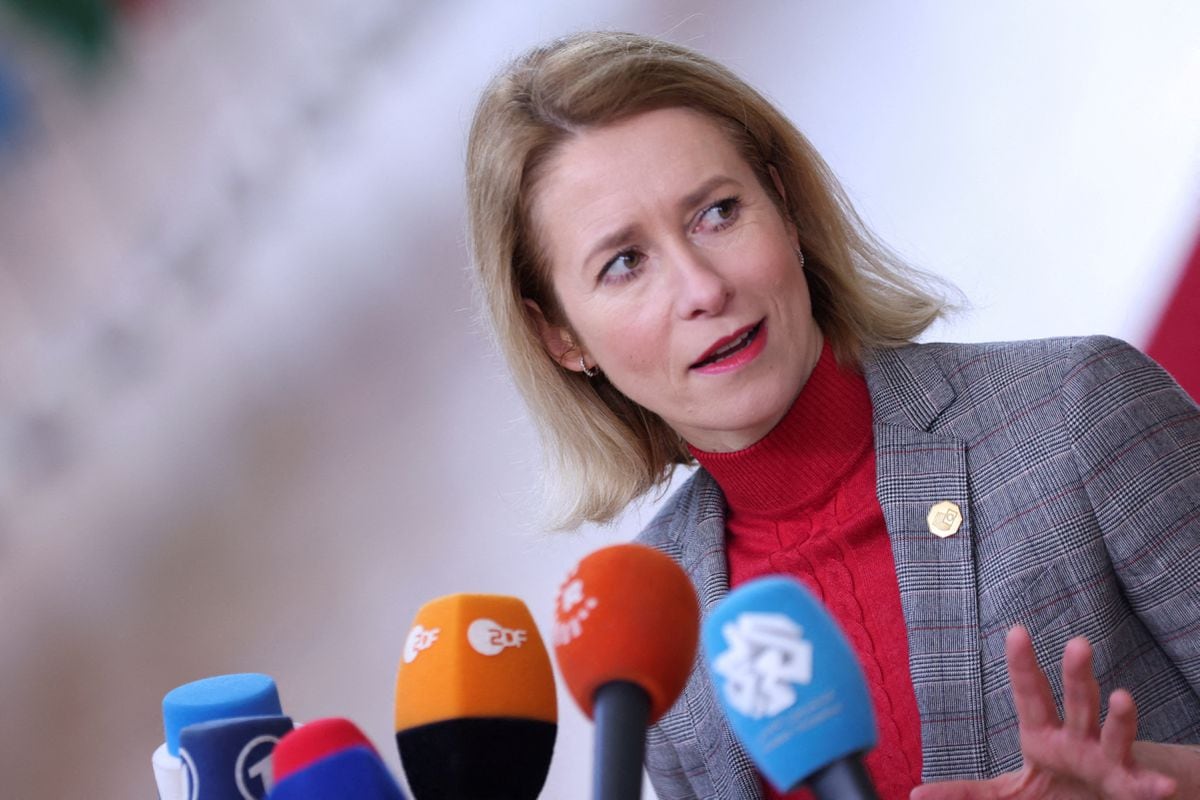The Russian Government has published an arrest warrant against the Prime Minister of Estonia, Kaja Kallas, her Secretary of State, Taimar Peterkop, and dozens of other European politicians for dismantling the monuments installed by the Soviet Union in their territories.
Estonia and other Baltic countries that were controlled by Moscow for decades decided to erase that past after the Russian invasion of Ukraine, but the Kremlin accuses them of supposedly rehabilitating Nazism.
“The crimes against the memory of those who liberated the world from Nazism and fascism must be answered.
And this is just the beginning,” warned the spokesperson for the Russian Foreign Ministry, Maria Zajárova.
The Russian Interior Ministry has added dozens of names to its wanted list.
The Estonian leader is also joined in the same positions by the Minister of Culture of Lithuania, Simonas Kairis, 67 deputies of the Latvian Parliament and six of the Lithuanian Parliament, 15 councilors of Riga, the Deputy Minister of Polish State Assets, Karol Rabenda, and a handful of mayors from these nations and Ukraine who have supported the demolition of Soviet statues.
The arrest warrant is loaded with symbolism and propaganda intended for the Russian public.
Without an extradition request, this measure only applies in Russian territory and it is unlikely that European politicians will set foot in the country with Vladimir Putin in power, who does have an arrest warrant from the International Criminal Court against him for the forced deportation of ukrainian children
Estonia, like other countries bordering Russia, has shown firm support for kyiv since the beginning of its invasion and has joined the “decommunization” to turn the page on decades of occupation after World War II.
The Kremlin's response has been to threaten its citizens.
In September, the Russian Investigative Committee charged
in absentia
more than 170 foreign citizens, mostly from Latvia, Lithuania, Estonia, Poland and Ukraine, with “desecration and destruction of monuments to Soviet soldiers.”
“Outrage to historical memory”
“These people are responsible for decisions that are actually an outrage to historical memory,” Putin's spokesman, Dmitri Peskov, said on Tuesday.
However, the fine line that separates Russian propaganda from the memory of those who died in the fight against fascism is blurred.
In addition to tearing down Soviet monuments, many Eastern countries have banned the display of the St. George ribbon, a military symbol of the old Russian empire that the Kremlin has converted into an emblem of Victory Day over Nazi Germany.
In his efforts to glorify the Russian imperial past, both tsarist and Soviet, Putin decreed at the beginning of the war against Ukraine that any “desecration” of the film would be a crime punishable by even prison sentences.
Furthermore, the exhibition of it could only be directed “to the patriotic and moral-spiritual education of Russian citizens.”
Despite its small size, Estonia is one of the European Union countries most committed to Ukrainian refugees, many of them arriving across the Russian border after a long journey of several days of travel.
Furthermore, Tallinn is not abandoning Kiev in the war effort either: Kallas recently announced that Estonia will devote 0.25% of its gross domestic product to Ukraine's military needs over the next four years.
However, Kallas's political position on Russia has been contradicted by his family's business dealings.
Despite publicly advocating to break commercial ties with the neighboring country, Estonian media revealed last year that two transport companies of her husband, Stark Logistics and Stark Warehousing, continued to be suppliers to clients in Russian territory after the outbreak of war.
According to an investigation by the Russian independent newspaper
Mediazona
, there are more than 700 people on the list of foreigners wanted by the Ministry of Foreign Affairs.
Of these, 396 are accused of acting as mercenaries in Ukraine.
The majority come from three countries: Georgia (another former Soviet republic at odds with Moscow), Belarus (a
sister
nation controlled with an iron fist by a leader supported by the Kremlin, Aleksandr Lukashenko) and the United Kingdom.
Follow all the international information on
and
X
, or in
our weekly newsletter
.
Subscribe to continue reading
Read without limits
Keep reading
I am already a subscriber
_

